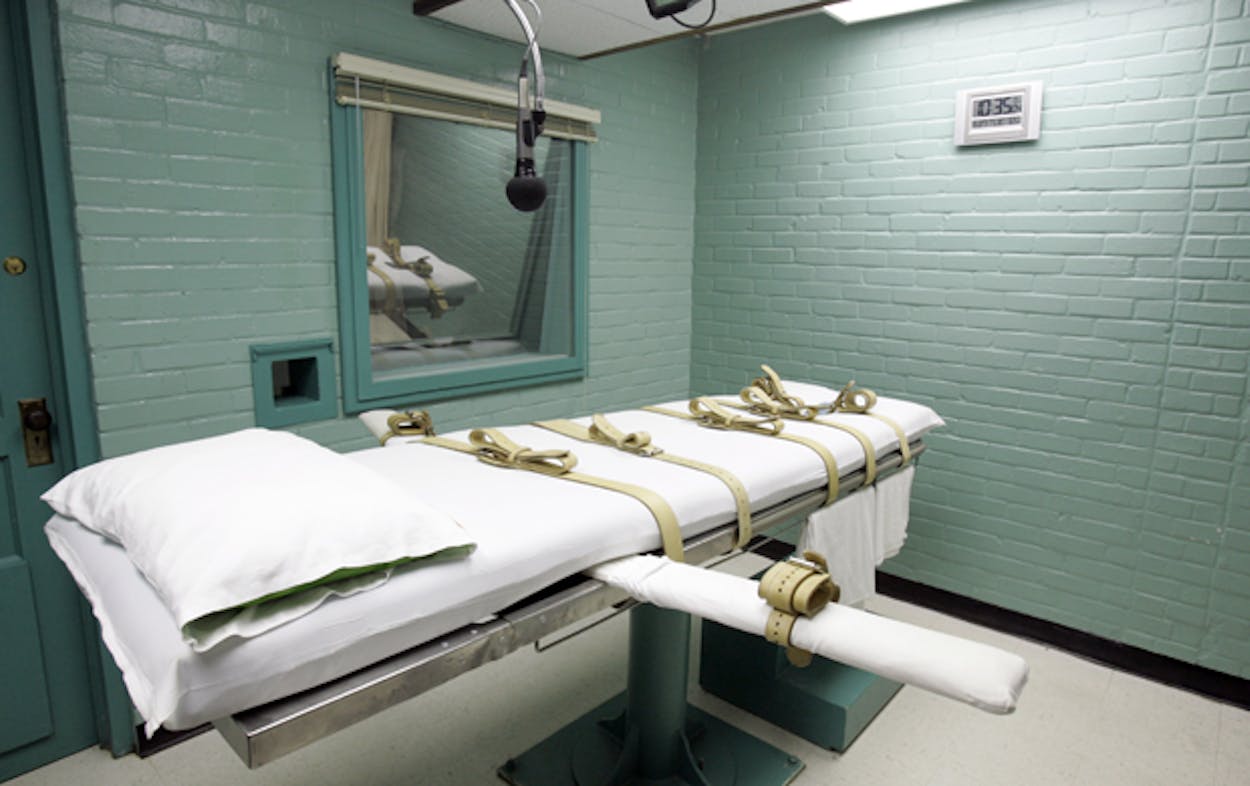No surprise here. Texas led the country in executions in 2011, putting thirteen prisoners to death, according to the Death Penalty Information Center‘s annual report. But executions were down by almost half since 2009, when the state executed 24 people.
“Texas is part of a nationwide trend away from the death penalty,” Kathryn Kase, interim director of the Texas Defender Service, said in a press release. “These numbers show that Texans have a growing discomfort with the chronic problems that infect the death penalty system, including the risk of convicting an innocent person, the costs, and its disproportionate use against people of color.”
Juries seem less eager to hand out the ultimate punishment; only eight new death sentences were handed down this year, compared to 48 in 1999.
This “precipitous decline in executions” can be credited to a number of factors, including the rising number of death row exonerations across the country (Texas has seen twelve since 1976), questions over the innocence of Cameron Todd Willingham who Texas executed in 2004, and a 2005 law that created a “life without parole” sentence, the Texas Tribune‘s Brandi Grissom wrote.
As the Daily Beast‘s Ben Crair noted earlier this year, Republican D.A. Pat Lykos has taken Harris County—which has executed 115 people since 1976, more than the state of Virginia has—in a different direction since taking over in 2009. “In Harris County, which has the most convicts on death row, courts have sentenced 110 convicts to life without parole since September 2005, when the no-parole sentence took effect. During that period, Houston juries have handed 11 prisoners a death sentence,” the Austin-American Statesman‘s Mike Ward wrote.
At the GOP debate at the Reagan Library in September, NBC News’ Brian Williams asked Rick Perry if he had ever worried about Texas putting an innocent man to death. “I’ve never struggled with that at all,” he said, drawing cheers from the crowd. “The state of Texas has a very thoughtful, a very clear process in place of which—when someone commits the most heinous of crimes against our citizens, they get a fair hearing, they go through an appellate process, they go up to the Supreme Court of the United States, if that’s required.”
Perry claimed the audience’s reaction was evidence of the country’s strong support for the death penalty, the Los Angeles Times reported. However, the Death Penalty Information Center’s report cited a Gallup Poll that showed support for capital punishment has dropped to “its lowest level…in nearly 40 years,” with only 61 percent support for the death penalty, down from eighty percent in 1994.







